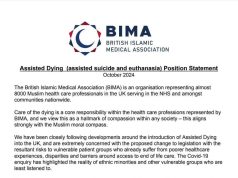During the Fifth Session of the Islamic Conference of Health Ministers a panel discussion on the involvement of NGOs in the improvement of Health Services in OIC Member Countries was held in Istanbul, Turkey on 18 November 2015. The participants in the panel discussion were as following Insaf Hag-Mousa, Qatar Red Crescent, Mehmet Fatih Serenli, SESRIC, Dr. Kerem Kinik, Doctors Worldwide, Turkey, Dr. Tanveer Zubairi, Federation of Islamic Medical Association, Mr. Ehsan Bin Saleh Tayeb, IIRO, Kingdom of Saudi Arabia, Mr. Enes Efendioglu from Civil Life Association and Mr. M. Hamid H. Azad of Muslim Aid-UK.
The objective of the Panel Discussion were to explore and introduce the role of NGOs in the improvement of health services both globally and in OIC, and discussing strategies to exploit their potentials for enhanced collaboration with public sector. Examining and discussing the challenges and obstacles as well as the prospects for the development of an integrated approach among NGOs for better coordination for the implementation of OIC SHPA. Exploring the possibility of partnership in specific activities and programmes with relevant national, international, regional and NGOs institutions. A brief summary on the Workshop on the “Role of NGOs in the Implementation of OIC Strategic Health Program of Action 2014-2023 (SHPA)” held on 7-8 April 2014 at SESRIC-HQ in Ankara was given to the audience. It was recommended to establish a working group to develop the Terms of Reference (ToR) for the OIC Ibn Sina Alliance of Helath NGOs, which will touch on the Alliance’s vision and include a five-year action plan for the period 2015-2020. This effort is to be led and facilitated by SESRIC with the support of some of the participating NGOs.
Dr. Tanveer Zubairi, President of Federation of Islamic Medical Association gave a brief review on the history of FIMA, its affiliates and its health care professionals. Dr. Zubairi highlighted the FIMA’s main working areas in health domain as follows: Consortium of Islamic Medical Colleges, Islamic Hospital Consortium, Research and Publications, Medical Relief, FIMA Save Vision, Smile and Dignity, Medical Students Activities, HIV AIDS Resource Centre. Dr. Zubairi emphasized the role of Capacity Building programmes in the implementation of the SHPA. Dr Zubairi highlighted the efforts of FIMA in the fight against AIDS and in Polio eradication.
EDITORIAL
During the Fifth Session of the Islamic Conference of Health Ministers a panel discussion on the involvement of NGOs in the improvement of Health Services in OIC Member Countries was held. The panelists inspired by the ideas and views on various aspects of NGO involvement in the improvement of health services in OIC Member Communities have put forward the following recommendations for consideration by member countries.
•Volunteerism for NGOs in the implementation of various health programs should be promoted by all stakeholders.
•Specialisation in specific areas related to healthcare service delivery is important for NGOs in order to become more efficient in supporting the implementation of the different thematic areas in the SHPA.
•Adopting participatory approach with different stakeholders among NGOs themselves, and between them and other entities including governments, donors, and private sectors would influence the effective and sustainable delivery of health services.
•NGOs can play significant role in conducting outreach activities and working with communities at the grass root level, such as influence the change of myths and misbelieves on health related issues.
•NGOs are active in the development of sustainable health centres around the Islamic world to ensure healthy lives and promote well-being for all at all ages particularly in the state of disasters and fragile conditions.
•Youth should be actively involved in decision making processes in health sector.
•Young NGOs in member countries should be supported for better inclusion and deeper cooperation in health sector, as well as to promote non-formal and peer to peer education methodologies to fight against diseases.
•NGOs could be active in improving health services through capacity building, awareness raising, acting as link between community and government and in its efforts in improving coverage of health care services, as well as addressing gaps and advocating for the importance of strengthening health regulatory systems in OIC countries.
•NGOs strength in provision of services to vulnerable and deprived communities, through changing cultural perceptions and social dynamics should be capitalised.
•National Primary Health Councils (PRH) that facilitates inter-sectoral collaboration among NGOs and relevant ministries is crucial for planning, implementing, monitoring and evaluating health policies and strategies.
•Domestic and international regulation facilitating NGO operation in capacity building care in order to facilitate access to health services.
•A mechanism for clear cut decision making process based on trust, transparency and solidarity should be developed in order for NGOs to play their roles in global health services within the framework of the SHPA.
These recommendations were finalized and presented before the open house of Islamic Conference in its concluding session.











